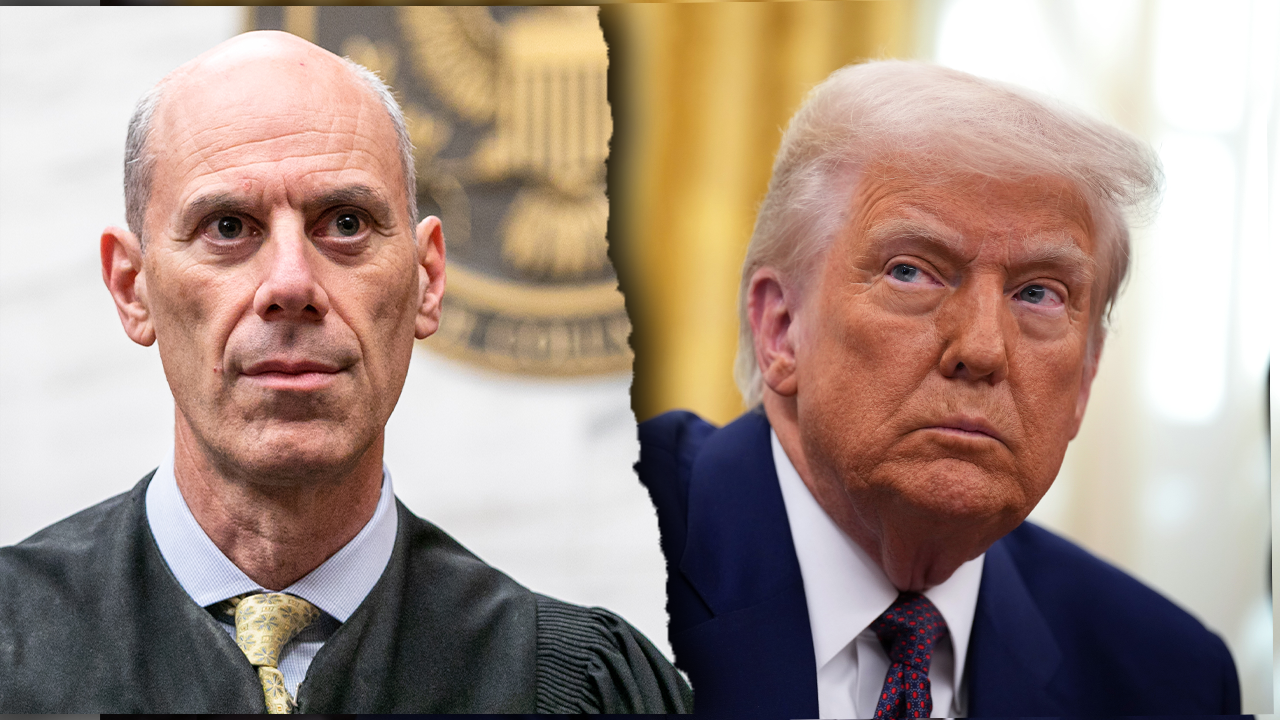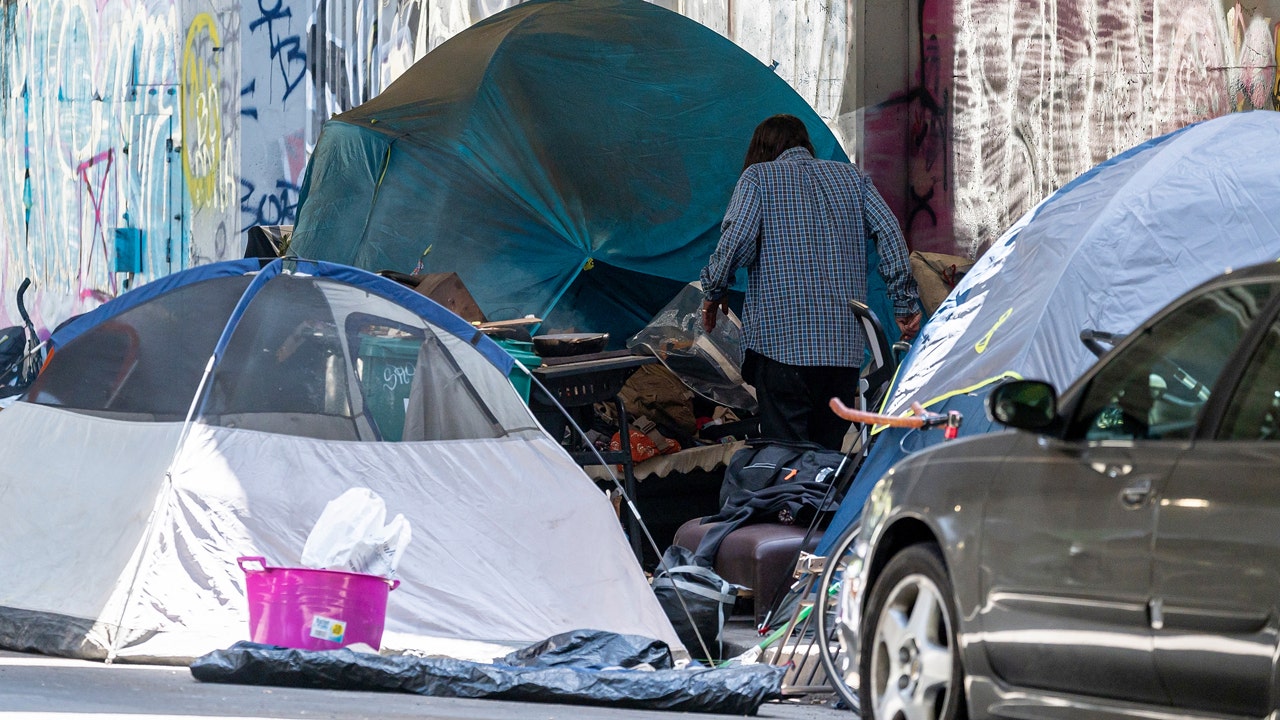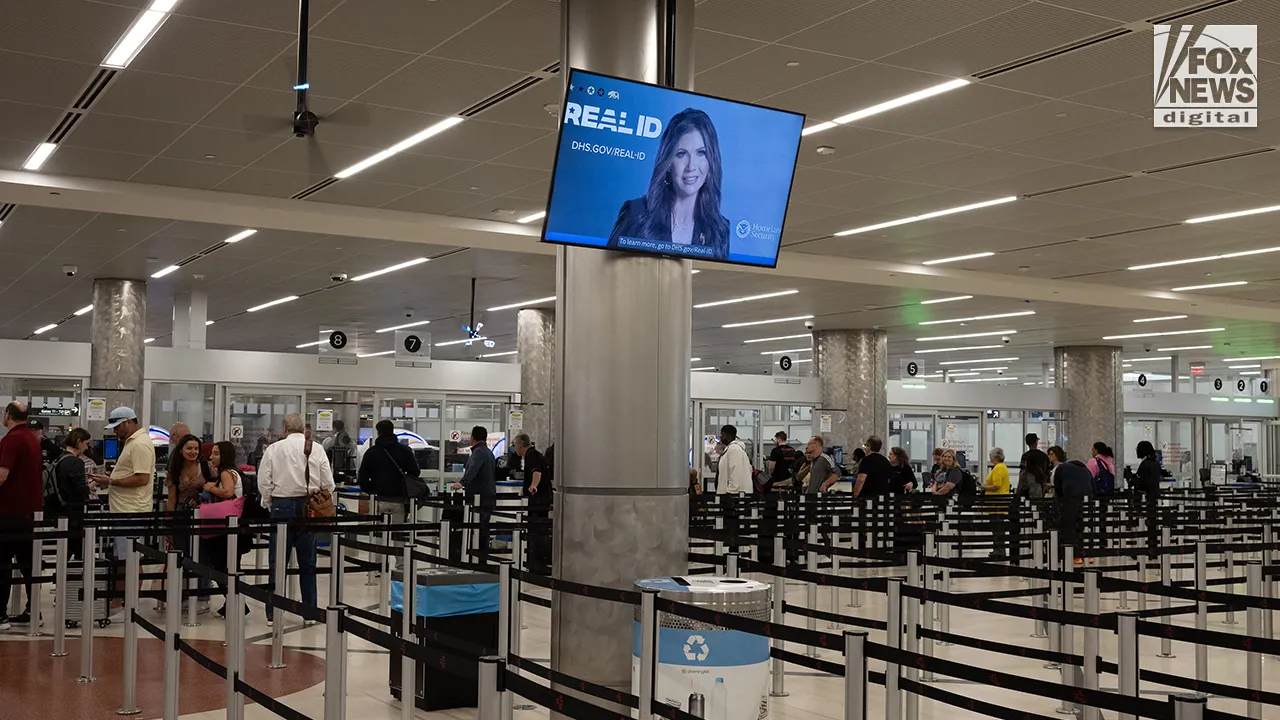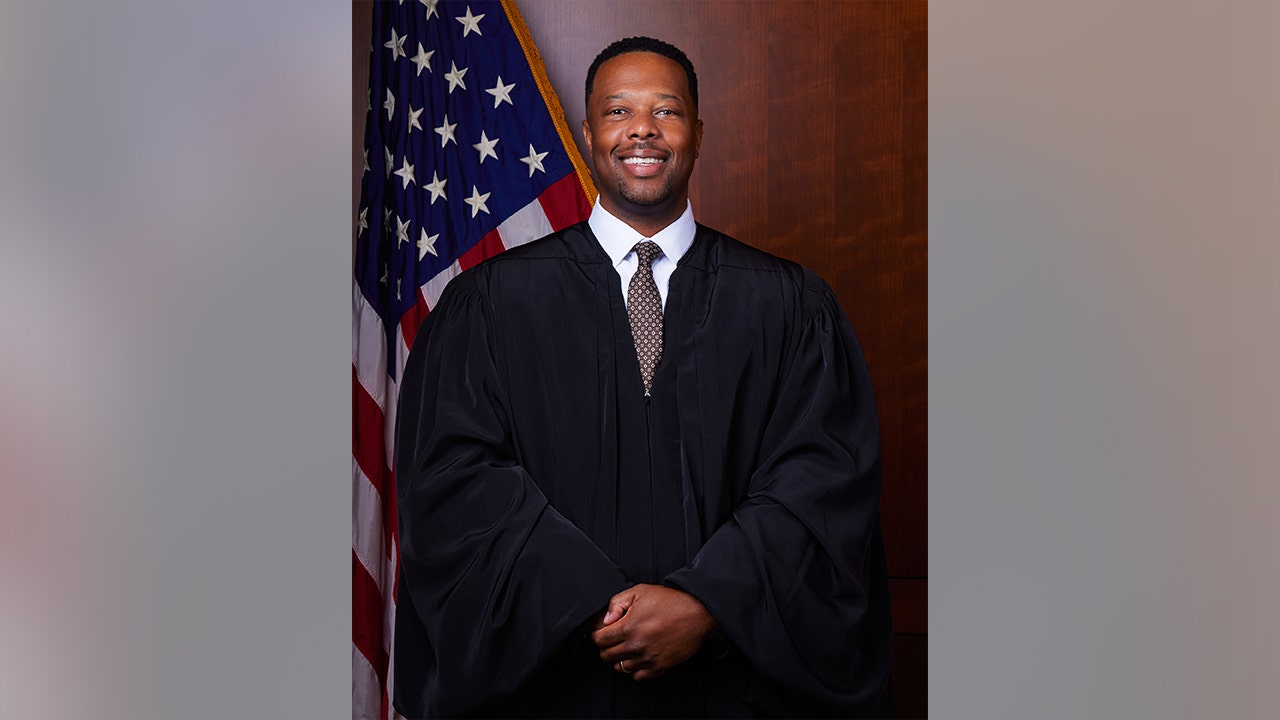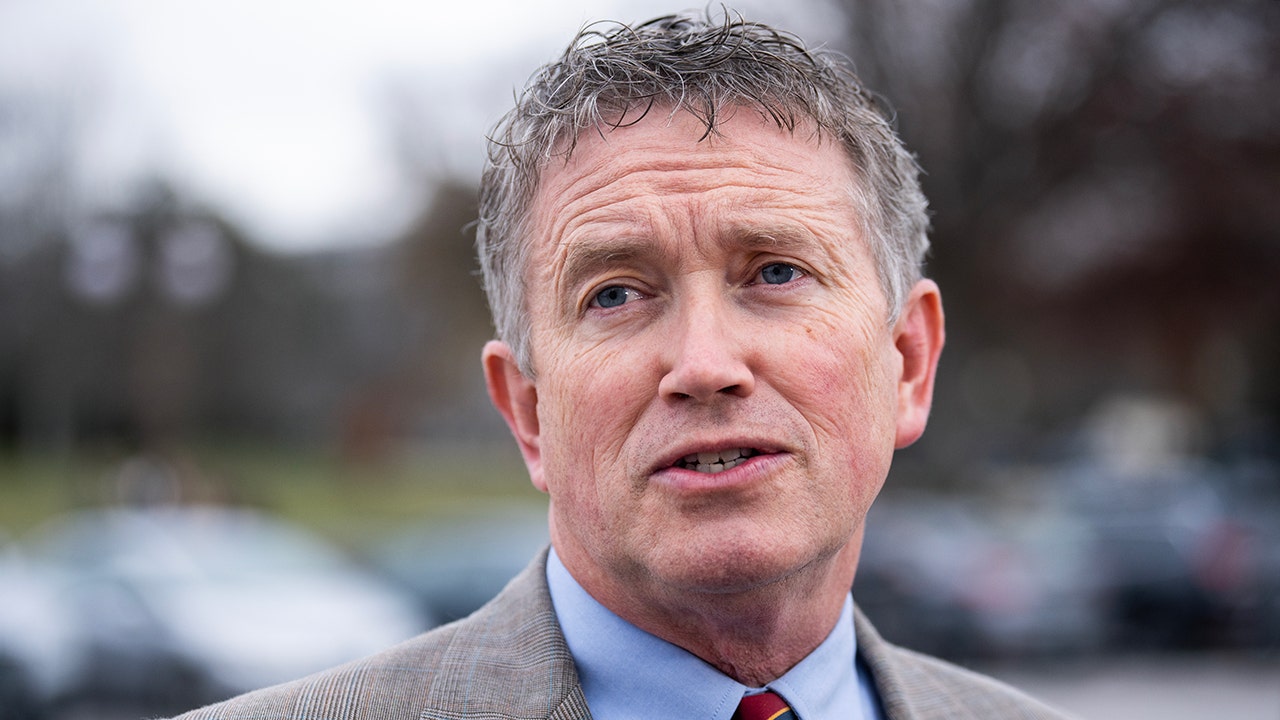U.S. District Judge James Boasberg pressed Justice Department lawyers Wednesday evening over public comments President Donald Trump and other Cabinet officials made about deportation proceedings under the Alien Enemies Act and floated the idea of moving some migrants to Guantánamo Bay.
During the hearing, Boasberg specifically pressed Justice Department lawyers about statements made by Trump and DHS Secretary Kristi Noem about CECOT, the maximum-security prison in El Salvador where the U.S. has deported hundreds of migrants, and the White House’s ability to secure someone’s release.
He asked specifically about Trump’s remarks in an interview with ABC News, in which Trump told ABC News he “could” secure the return of Kilmar Abrego Garcia, a Salvadoran and alleged gang member, back to the U.S. from El Salvador if he chose to.
“Is the president not telling the truth?” Boasberg asked Justice Department lawyer Abhishek Kambli. “Or could he secure his release?”
WHO IS JAMES BOASBERG, THE US JUDGE AT THE CENTER OF TRUMP’S DEPORTATION EFFORTS?
The question goes to the heart of whether El Salvador has custody of the deported migrants, a major question at the heart of the case.
Another key part of the hearing focused on the lawfulness of the Alien Enemies Act proclamation used by Trump to quickly deport migrants from the U.S. to the Salvadoran prison.
Boasberg asserted that the Supreme Court had not, in fact, upheld Trump’s use of the Alien Enemies Act to deport certain migrants, quoting from the high court’s ruling before noting to Justice Department lawyers that the Supreme Court “did not decide one way or another” on the validity of Trump’s proclamation.
Boasberg floated the idea of moving the migrants detained at CECOT to the U.S. Guantánamo Bay detention center, where the government could then ascertain if they are members of Tren de Aragua, the violent Venezuelan gang the Trump administration said prompted its use of the Alien Enemies Act.
He also grilled Kambli over Noem’s comment that CECOT is “one of the tools in our toolkit” the U.S. “can use” against individuals who commit crimes against the American people, and comments from White House press secretary Karoline Leavitt that the U.S. has provided $6 million to El Salvador to house migrants at the CECOT prison.
In response, Kambli said these remarks sometimes “lack nuance” and described the payments to El Salvador as “grants.”
The fast-paced hearing was marked by sharp lines of questioning from Boasberg, both over the claims made by Trump officials and whether the early wave of migrants deported to CECOT received any due process or prior notice before they were deported to El Salvador.
Boasberg asked Lee Gelernt, an ACLU lawyer arguing for the plaintiffs, if they had any representations on whether the first class of migrants deported to CECOT under the Alien Enemies Act had prior notice or received any due process protections.
Gelernt reiterated that the first group of migrants deported received no prior notice, telling the court the individuals had received declarations from the government as they were being loaded onto buses on the way to the airport from which they would be sent to the Salvadoran prison.
TRUMP ADMIN SEEKS EMERGENCY RELIEF OF BOASBERG CONTEMPT THREAT
Gelernt also noted that the notices handed to migrants said “NO REVIEW IS AVAILABLE” in English at the top.
That phrase has since been removed from the declarations but has not been replaced with any details on eligibility for review or habeas relief.
“They got some notice,” Kambli told Boasberg, notring he was not sure of the “precise contours of that.”
“If it wasn’t even 12 hours, you’re not going to say that they got due process,” Boasberg fired back.
Boasberg ended the hearing by telling both parties he planned to issue an order Thursday explaining next steps and giving the government until Friday to file any further declarations. From there, plaintiffs will have until Monday to review discovery, including requests for additional information.
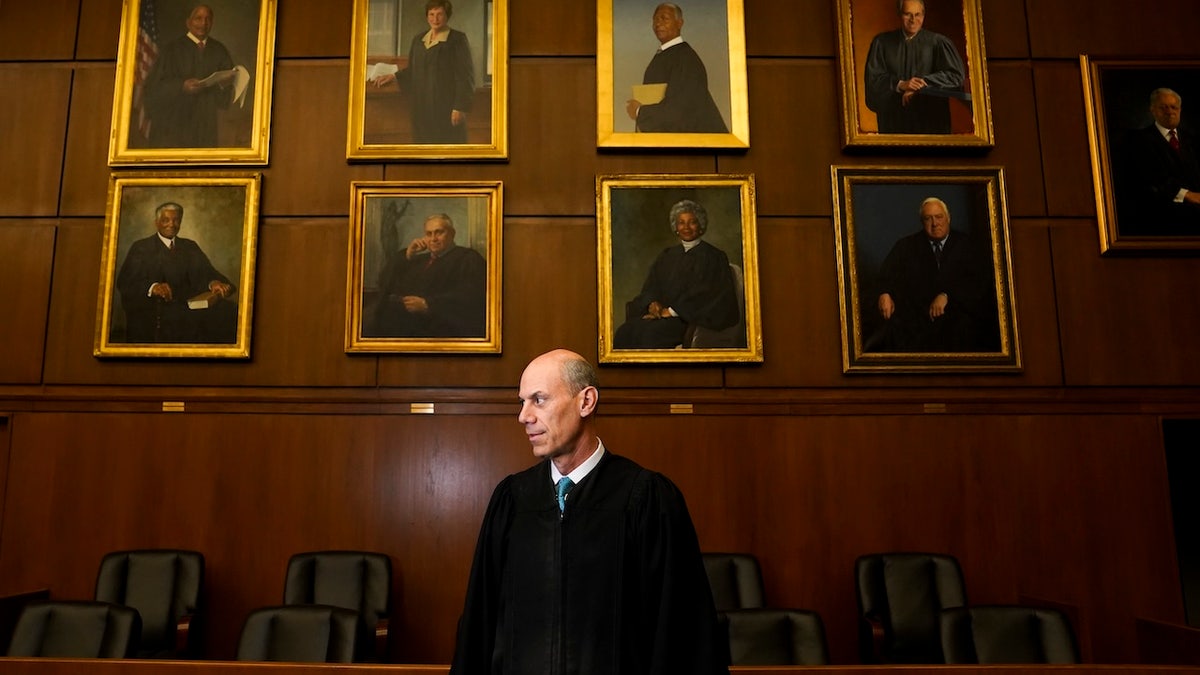
Trump officials have sought to portray Boasberg, a high-profile judge in D.C., as the face of judicial overreach, and today’s hearing could put him back in their crosshairs.
Unlike the previous lawsuit heard by Boasberg in March, which sought to temporarily block Trump’s use of the Alien Enemies Act to swiftly deport certain U.S. migrants, the plaintiffs are asking the court to hear a larger request for more lasting relief.
The preliminary injunction was filed as a class and seeks to protect two classes of migrants — detainees already removed from the U.S. to the infamous Salvadoran prison and those still detained on U.S. soil at risk of imminent removal.
The plaintiffs are seeking broader and more lasting relief for two groups of individuals at risk of what they argue is “grave and irreparable harm” under the Alien Enemies Act.
For U.S. detainees who could be removed under the law, plaintiffs asked for an order blocking their removal under the AEA and requiring the Trump administration to provide them at least 30 days notice before any planned removals, notice they said would be sufficient to allow them to challenge their removals in U.S. court.
Migrants who were already deported to CECOT could face a trickier path to relief.
TRUMP DEMANDS SUPREME COURT STEP IN AFTER FEDERAL JUDGES BLOCK HIS AGENDA: ‘THESE PEOPLE ARE LUNATICS’
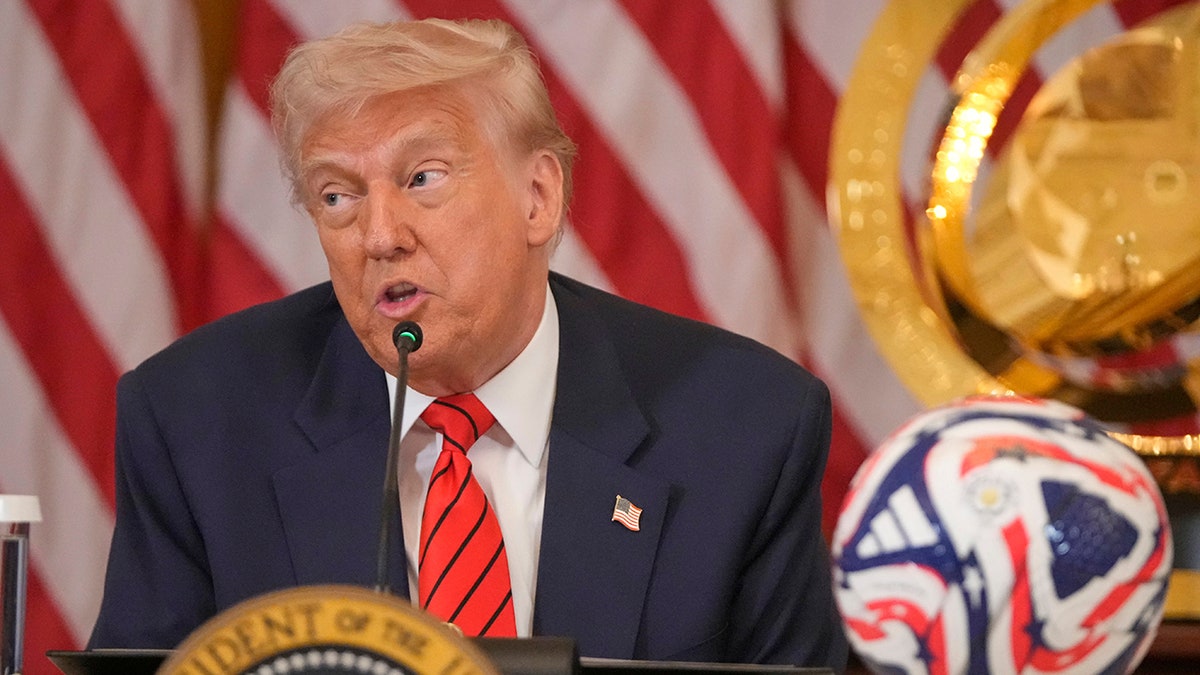
The plaintiffs asked Boasberg in their amended request to order the Trump administration to not only facilitate the return of already deported migrants, but to take “all reasonable steps” to do so.
This could include requiring the administration to request any contractors or agents in El Salvador to transfer the individuals from CECOT and into the “physical custody” of the U.S., they said.
It’s unclear whether the Trump administration will take any steps to comply with the order should Boasberg move to grant the injunctive relief plaintiffs are seeking. If their responses are any indication, compliance in the near term seems unlikely.
4 MORE DEMS TRAVEL TO EL SALVADOR TO PUSH FOR ABREGO GARCIA’S RETURN TO US
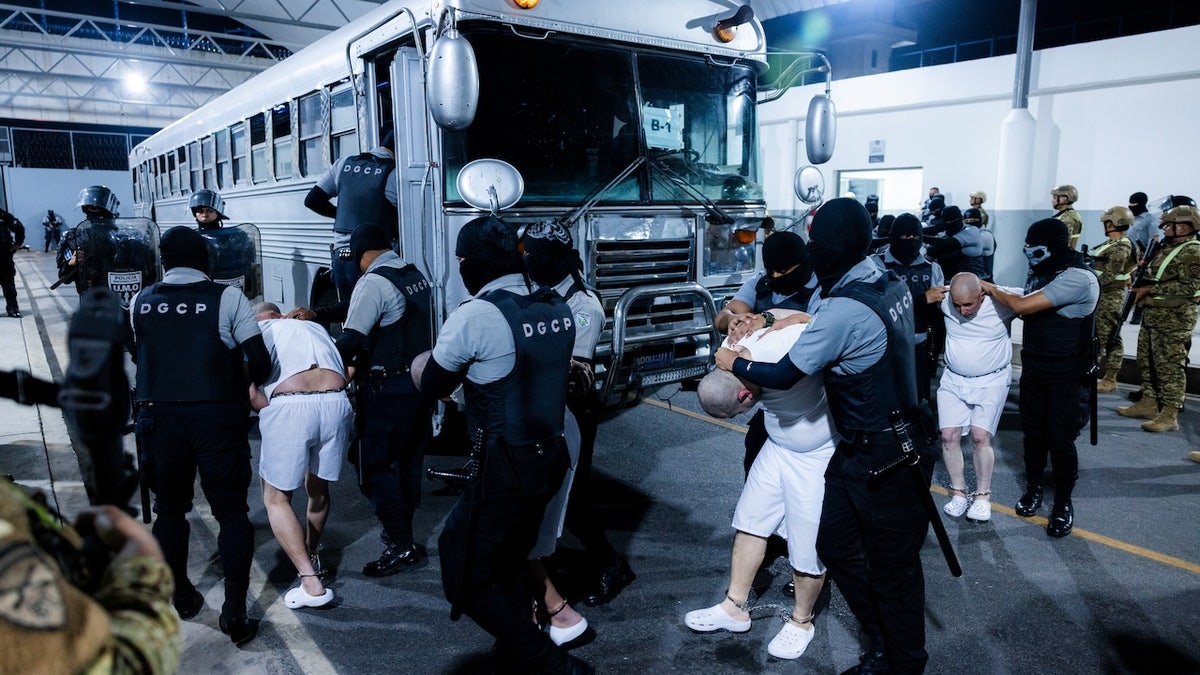
The hearing comes as the Trump administration has grown increasingly defiant in the face of court orders to return migrants from CECOT back to the U.S., including two migrants erroneously deported to the maximum security prison in March and ordered back to the U.S. by two separate federal judges.
The administration has refused to return them. So far, the Trump administration has not said whether it has returned any migrants deported from the U.S. to CECOT under the law.
And the identities of these individuals can be difficult to track. To date, the Trump administration has not released a list of the names of individuals it has deported to El Salvador under the Alien Enemies Act‚ and the Salvadoran government has also shielded their identities from public disclosure.
The administration’s growing resistance on the issue has sparked fresh concern from Trump critics and some court observers who have cited fears the administration could be testing boundaries on executive branch authorities.
The plaintiffs also cited fears of harm to the migrants.
They said in their filing that, absent injunctive relief, the Trump administration “will be free to send hundreds more individuals to the notorious Salvadoran prison, where they may be held incommunicado for the rest of their lives.”



